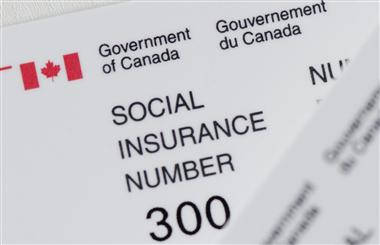Don’t Be A Victim of Identity Theft : Protect Yourself
Between 2009 and 2011, over 43,000 Canadians were the victims of fraud. Identity Theft is a type of Mass Marketing Fraud (or MMF). Other MMF schemes include telemarketing fraud and internet fraud. The largest age group affected by fraud was between 50-59 years and the main method of solicitation occurred electronically, that is, through email or text messaging.
2011 saw the highest financial loss in terms of identity theft – over $13 million dollars (an increase of just over $3.5 million from 2010).However worrisome this is, there are ways to protect yourself, ways to quickly identify if you’ve been a victim of identity theft and most importantly, means for help.
What pieces of information are highly prized in identity theft?
- Full Name
- Social Insurance Number *Note: Starting in 2014, the Canadian Government will be issuing SIN numbers in letters, phasing out the actual red and white cards.
- Date of Birth
- Full Credit Card Information
- Bank Account Numbers
- Mother’s Maiden Name
- Usernames/Logins and Passwords for Sensitive Online Transactions
- Your Personal Identification Numbers (PIN’s for credit cards and bank cards)
- Your Signature

What Can They Do with this Information?
- Open new and access current bank accounts you own
- Apply for loans, credit cards and other services requiring a credit score or identity
- Steal your money by making purchases
- To obtain government benefits
- Criminal activities
How Can You Protect Yourself?
- Swipe your own cards when you’re shopping. Most stores want you to do it now anyways for their own protection and yours.
- Never ever write PIN’s or other personal access information on anything. Memorize them.
- Shield your PIN’s when entering them. You won’t look stupid. Trust us. Better safe than sorry.
- Shred personal documents. If you see suspicious behaviour in your neighbourhood around garbage day, call the authorities!
- Don’t click on links in emails that want you to go to a third party website. A bank will NEVER send you an email asking you to log into your bank account. The most you should get from your credit card company is a notification that your monthly statement is ready – and that’s only if you signed up for it.
- Be extra cautious of unsolicited emails, calls or email trying to get personal information from you. If you’re unsure if it’s a valid call, call whomever is claiming to try and reach you by the number you know (on official documents). Verify whether or not the email came from them and if not, report it immediately.
- Check your own credit reports. You can order a report online for FREE at any time. It’s worth checking over every 6 months to make sure there’s no irregular activity. If there is, notify the authorities.
What You Should Do If You Discover You’re a Victim:
- Contact your local police force and file a report.
- Contact your bank/financial institution and credit card company. Inform them of the fraud. They have units and special systems in place to protect you from this point on.
- Contact TransUnion Canada and Equifax Canada and place a “fraud alert” on your reports.
TransUnion Canada 1-877 525-3823
Equifax Canada 1-800 465-7166
Identity Thieves can see up to 5 years imprisonment for their crimes under Bill S-4 which came into effect in 2010. Do yourself a favour – stay on top of your reports, take necessary measures to protect your information. If the worst should happen, call the police.
Sources:
Canadian Anti-Fraud Centre Annual Report 2011
Department of Justice Canada




